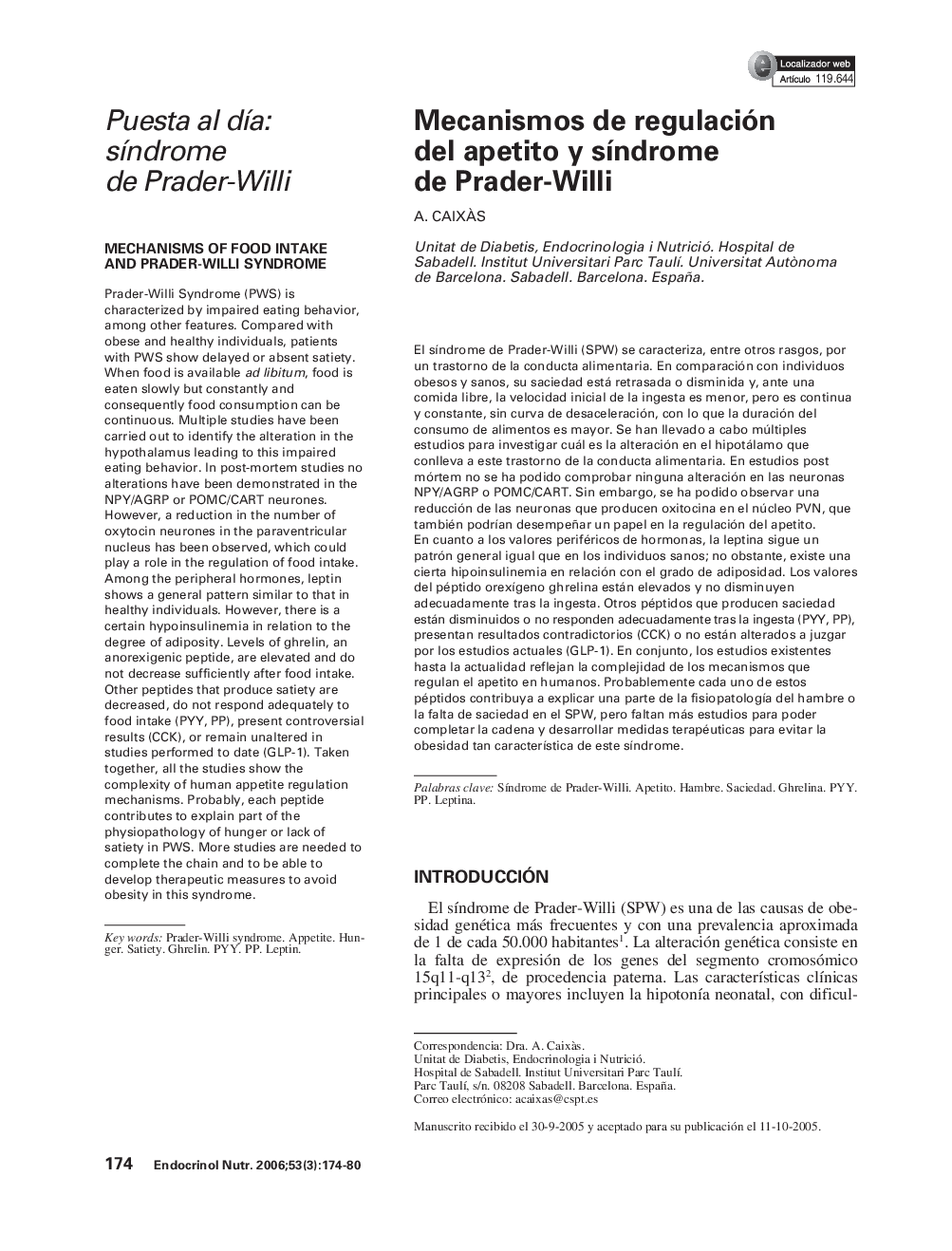| کد مقاله | کد نشریه | سال انتشار | مقاله انگلیسی | نسخه تمام متن |
|---|---|---|---|---|
| 2774658 | 1152234 | 2006 | 7 صفحه PDF | دانلود رایگان |
عنوان انگلیسی مقاله ISI
Mecanismos de regulación del apetito y sÃndrome de Prader-Willi
دانلود مقاله + سفارش ترجمه
دانلود مقاله ISI انگلیسی
رایگان برای ایرانیان
کلمات کلیدی
موضوعات مرتبط
علوم زیستی و بیوفناوری
بیوشیمی، ژنتیک و زیست شناسی مولکولی
بیوشیمی بالینی
پیش نمایش صفحه اول مقاله

چکیده انگلیسی
Prader-Willi Syndrome (PWS) is characterized by impaired eating behavior, among other features. Compared with obese and healthy individuals, patients with PWS show delayed or absent satiety. When food is available ad libitum, food is eaten slowly but constantly and consequently food consumption can be continuous. Multiple studies have been carried out to identify the alteration in the hypothalamus leading to this impaired eating behavior. In post-mortem studies no alterations have been demonstrated in the NPY/AGRP or POMC/CART neurones. However, a reduction in the number of oxytocin neurones in the paraventricular nucleus has been observed, which could play a role in the regulation of food intake. Among the peripheral hormones, leptin shows a general pattern similar to that in healthy individuals. However, there is a certain hypoinsulinemia in relation to the degree of adiposity. Levels of ghrelin, an anorexigenic peptide, are elevated and do not decrease sufficiently after food intake. Other peptides that produce satiety are decreased, do not respond adequately to food intake (PYY, PP), present controversial results (CCK), or remain unaltered in studies performed to date (GLP-1). Taken together, all the studies show the complexity of human appetite regulation mechanisms. Probably, each peptide contributes to explain part of the physiopathology of hunger or lack of satiety in PWS. More studies are needed to complete the chain and to be able to develop therapeutic measures to avoid obesity in this syndrome.
ناشر
Database: Elsevier - ScienceDirect (ساینس دایرکت)
Journal: EndocrinologÃa y Nutrición - Volume 53, Issue 3, March 2006, Pages 174-180
Journal: EndocrinologÃa y Nutrición - Volume 53, Issue 3, March 2006, Pages 174-180
نویسندگان
A. Caixà s,